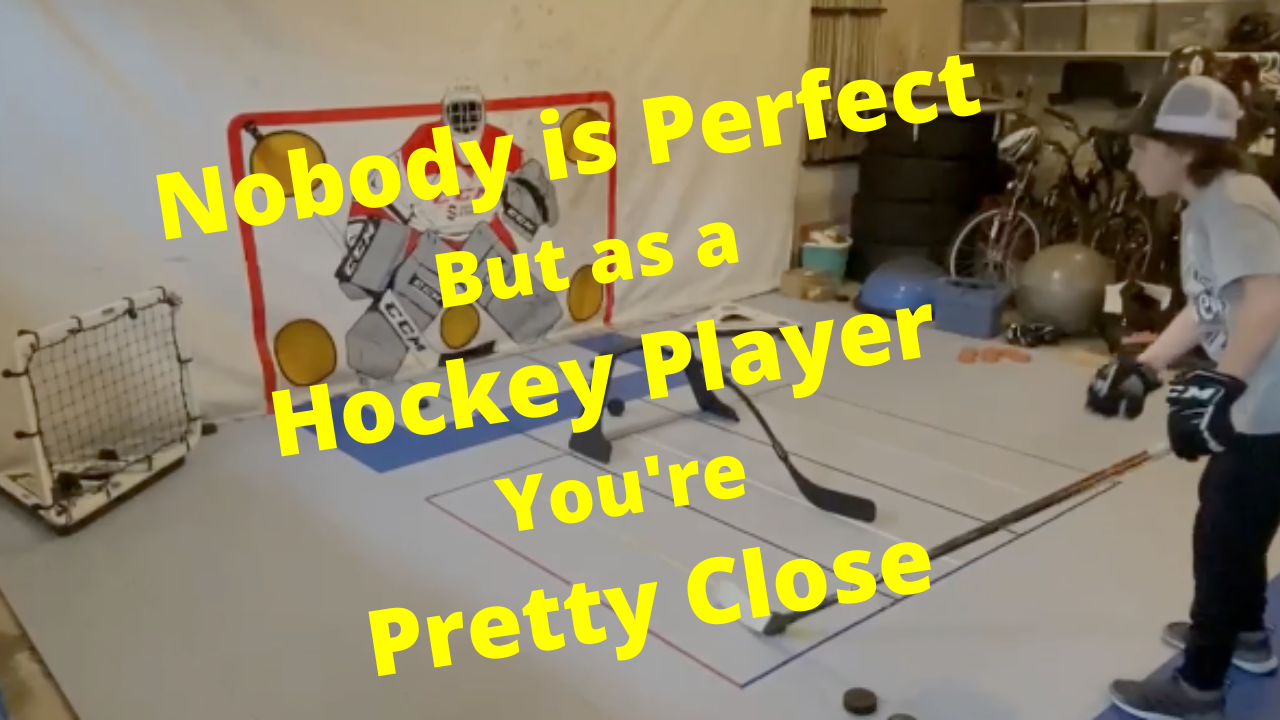Can You Become the Perfect Hockey Player?
Mar 22, 2021
Competition brings out the best and worst in hockey players. When things are going well, the game is easy and fun. The problem lies in the fact that hockey is not always easy or fun each day. Challenging emotions that appear in these tough times are embarrassment, frustration, anger and loneliness. The odds are pretty high that the reason for those unproductive thoughts stems from one thing, Mistakes!!
Too often, when a player makes a mistake, they quickly find themselves swimming in a pool of negativity. They beat themselves up with self-defeating thinking, which adds to the stress of the situation. This knee-jerk reaction to the dark side only intensifies the moment and doesn’t get you any closer to playing better.
This all starts with one simple concept how do you view mistakes? Most of us were taught that mistakes are bad and you should avoid them at all costs. As a coach, I’ve found myself early on, sending the same message to my team. Don’t make mistakes if you want to win. I realized that I had to separate my own competitiveness, for what was best for the player’s long-term development. From that point, I completely changed my coaching style.
If you look at a hockey game regardless of the level of play, it’s guaranteed that there will be an abundance of mistakes. A missed pass, the wrong defensive read or blowing a tire that results in a quality scoring chance for the opposition. If every player outwardly verbally vented when a mistake happened, the ice surface would be loud, and an interesting listen.
I try to communicate to the players I work with, to not view hockey mistakes as bad, but as instant feedback that can actually be used to accelerate learning and skill acquisition. If you know that mistakes will happen every game or practice, use that knowledge to your advantage. Instead of getting upset, become a master problem solver.
If something didn’t turn out like you wanted, once on the bench, take a breath and ask yourself how I could have done things differently. If it was a move you were trying to make, break it down into parts. Maybe it was a maneuver that required 5 steps. You got to number 3, and then things went south. Identify what you could have done differently, and then let it go and start preparing for your next shift.
This type of at the moment problem solving doesn’t allow for negative thinking. You instantly go into constructive thinking mode. This will eliminate any wasted time you used to spend on something that happened during a shift that you can never go back to. The quicker you can let previous shifts go from your thoughts, the quicker you can start preparing for your next change.
Thanks for stopping by and remember to Work Hard and Dream Bigger than Everyone Else!!
